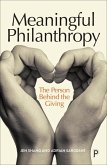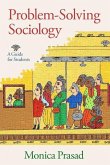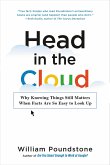The Explanation of Social Action is a sustained critique of the conventional understanding of what it means to explain something in the social sciences. It makes the strong argument that the traditional understanding involves asking questions that have no clear foundation and provoke an unnecessary tension between lay and expert vocabularies. Drawing on the history and philosophy of the social sciences, John Levi Martin exposes the root of the problem as an attempt to counterpose two radically different types of answers to the question of why someone did a certain thing: first person and third person responses. The tendency is epitomized by attempts to explain human action in causal terms. Martin, instead of assuming that there is something fundamentally arbitrary about the cognitive schemes of actors, focuses on the nature of judgment. He argues that the most promising way forward to such a science of social aesthetics will involve a rigorous field theory. This paperback edition includes a new preface, in which Martin connects The Explanation of Social Action to deep neural networks that are important to the study of artificial intelligence and to the development of computational social science.
Bitte wählen Sie Ihr Anliegen aus.
Rechnungen
Retourenschein anfordern
Bestellstatus
Storno








